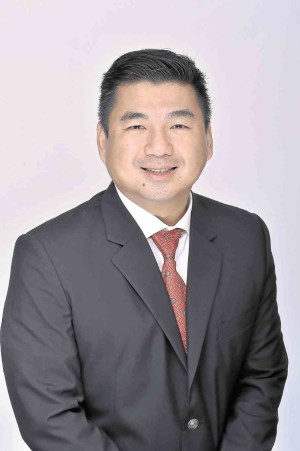Dennis Uy was only 29 years old when he started his oil trading business in Davao City. It was not an easy start for Uy as he came late into the competition with several independent oil companies already established in the market, five years after the Oil Deregulation Law was passed.
Lack of capital and industry experience did not discourage Uy from putting up his own business. Operating with only 10 employees with no regular revenue streams, the business struggled like any ordinary startup venture.
Not so long after the business was launched, Uy soon found his biggest break by landing an exclusive logistics deal with Cebu Pacific to service its requirements in Mindanao. The partnership with Cebu Pacific paved the way for Uy to expand his business from industrial distribution to retail operations.
Today, 14 years since the company was founded in 2002, Phoenix Petroleum already has over 500 stations nationwide with annual sales of over P30 billion, making it the largest independent oil company in the Philippines.
How did Dennis Uy grow his startup to be one of the biggest oil company in the market in a short span of time? Here are some business lessons every startup can learn from the founder of Phoenix Petroleum:
Taking smart risks
To succeed in business is to not be afraid to fail. An entrepreneur must be willing to take risks with every business decision and learn from failures.
“I always say that I have more balls than brains. When I see a good business opportunity, I just go ahead and plan later. Sometimes if you don’t decide immediately, it may prove more costly later on,” Uy says.
Leveraging public company status
Going public is more than raising capital to expand the business. It is also about building a positive image for the company that can enhance its growth opportunities.
“[The initial public offering] was a game changer. We were able to raise P220 million and gave us a chance to talk to the banks and creditors who supported us with bank lines. We were also able to attract talents and professionals from the industry who joined us,” he adds.
Phoenix Petroleum has already raised over P5 billion from the issuance of preferred shares and short-term commercial papers since becoming a listed company.
Hiring people with the right attitude
Building a great company needs great people. Knowing how to separate the winners and losers can make a lot of difference in the success of a company.
“Competence can be taught, but not attitude. You need to get people with integrity. It is not possible to manage a big company without trusting. That’s the reason we grew fast because I trust my employees,” Uy says.
“I always have that attitude that there will always be more good people than bad. Just like in marriage, you will never know the person until you are together. When they join, they have to believe in our business and hopefully, they will love our company more than we do.” Uy says.
Empowering people to take risks
To develop a culture of innovation, companies must encourage employees to try new ideas and accept the risk that some may fail.
“We have a lot of business units split up internally and I tell [employees] that you have to treat your unit as your own company. I encourage them to think of solutions and see if there is anything to improve or expand. They run the unit and if it makes more money, they get more bonuses,” Uy says.
“Sometimes they don’t succeed, but at least they … are not embarrassed to propose something that will add value to the company,” Uy adds.
Using social capital
There is a quote by famous sales book author Zig Ziglar, that if your customers like you, they will listen to you but if they trust you, they will do business with you.
Business relationships need to be nurtured, especially those that are strategic to company growth. In order for relationships to grow, trust is important.
“We value our relationships with our customers. We try to be more flexible compared to our multinational competitors, whose decision making process takes longer than us. We also give leeway to our people to negotiate with our customers,” Uy says. —CONTRIBUTED


